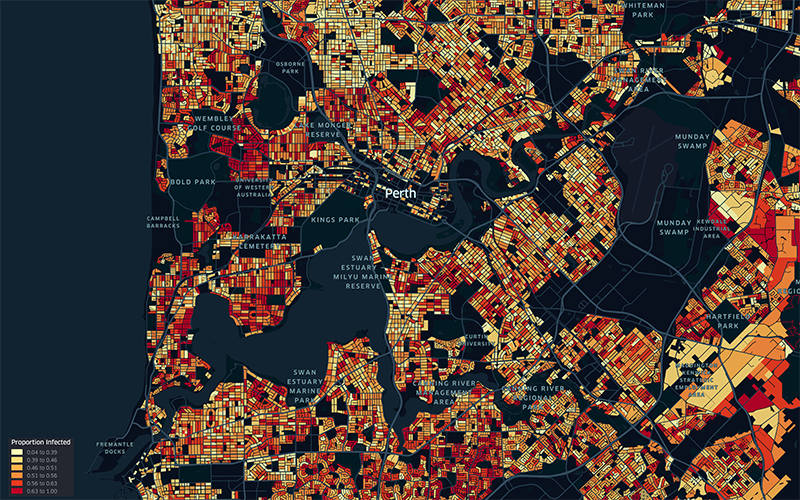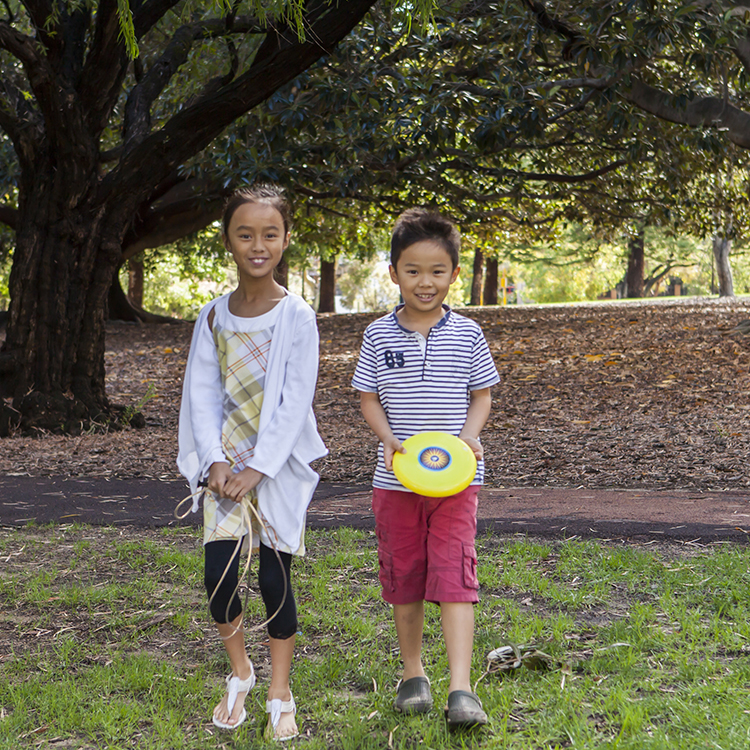Search

News & Events
Sophisticated new modelling suggests keeping mask mandate could prevent 147,000 COVID-19 casesWA’s current Omicron COVID-19 outbreak could jump by 147,000 cases if mask mandates are abandoned before the Easter long weekend, according to sophisticated new modelling.
Research
A malaria seasonality dataset for sub-Saharan AfricaMalaria imposes a significant global health burden and remains a major cause of child mortality in sub-Saharan Africa. In many countries, malaria transmission varies seasonally. The use of seasonally-deployed interventions is expanding, and the effectiveness of these control measures hinges on quantitative and geographically-specific characterisations of malaria seasonality.

Our Child Health Analytics Team uses cutting-edge technologies to better understand how and why the health and wellbeing of children varies from place to place. We develop innovative geospatial methods that can harness large, complex datasets to pinpoint hotspots of elevated risk, evaluate change through time, and explore underlying drivers.

News & Events
New study identifies African ‘hotspot’ for highly infectious diseasesA regional corner of Africa is a hotspot for cases of HIV, tuberculosis and malaria, prompting researchers to call for targeted health support rather than a national response.
Research
Mapping the endemicity and seasonality of clinical malaria for intervention targeting in Haiti using routine case dataTowards the goal of malaria elimination on Hispaniola, the National Malaria Control Program of Haiti and its international partner organisations are conducting a campaign of interventions targeted to high-risk communities prioritised through evidence-based planning. Here we present a key piece of this planning: an up-to-date, fine-scale endemicity map and seasonality profile for Haiti informed by monthly case counts.
Research
Space–time clustering characteristics of malaria in bhutan at the end stages of eliminationMalaria in Bhutan has fallen significantly over the last decade. As Bhutan attempts to eliminate malaria in 2022, this study aimed to characterize the space-time clustering of malaria from 2010 to 2019. Malaria data were obtained from the Bhutan Vector-Borne Disease Control Program data repository.
Research
Spatial clustering of drug-resistant tuberculosis in Hunan province, China: an ecological studyThis study aimed to investigate the spatial distribution of drug-resistant tuberculosis (DR-TB) in Hunan province, China. An ecological study was conducted using DR-TB data collected from the Tuberculosis Control Institute of Hunan Province between 2012 and 2018.
Research
Using Hawkes Processes to model imported and local malaria cases in near-elimination settingsDeveloping new methods for modelling infectious diseases outbreaks is important for monitoring transmission and developing policy. In this paper we propose using semi-mechanistic Hawkes Processes for modelling malaria transmission in near-elimination settings. Hawkes Processes are well founded mathematical methods that enable us to combine the benefits of both statistical and mechanistic models to recreate and forecast disease transmission beyond just malaria outbreak scenarios.
Research
DETECT Schools Study Protocol: A Prospective Observational Cohort Surveillance Study Investigating the Impact of COVID-19 in Western Australian SchoolsAmidst the evolving COVID-19 pandemic, understanding the transmission dynamics of the SARS-CoV-2 virus is key to providing peace of mind for the community and informing policy-making decisions. While available data suggest that school-aged children are not significant spreaders of SARS-CoV-2, the possibility of transmission in schools remains an ongoing concern, especially among an aging teaching workforce. Even in low-prevalence settings, communities must balance the potential risk of transmission with the need for students' ongoing education.
Research
COVID-19 in Ethiopia: A geospatial analysis of vulnerability to infection, case severity and deathCOVID-19 has caused a global public health crisis affecting most countries, including Ethiopia, in various ways. This study maps the vulnerability to infection, case severity and likelihood of death from COVID-19 in Ethiopia. Thirty-eight potential indicators of vulnerability to COVID-19 infection, case severity and likelihood of death, identified based on a literature review and the availability of nationally representative data at a low geographic scale, were assembled from multiple sources for geospatial analysis. Geospatial analysis techniques were applied to produce maps showing the vulnerability to infection, case severity and likelihood of death in Ethiopia at a spatial resolution of 1 km×1 km.
